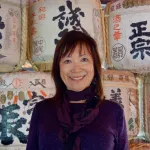A Poetry Mixtape Edited by Joanne Epp
Joanne's Liner Notes
For most of us, our earliest human relationship is with our mothers, and for the first years of our lives it’s often the most intimate. And yet, there are many reasons why we might find it a challenge to really know our mothers well.
My mother grew up on a farm, in a very large family, back when housework and farm work involved a lot more manual labour. I grew up in town, with only one sibling; I now live in a city, and have a washer and dryer and dishwasher. And so, even though her birthplace and mine are only 15 kilometres apart, there was a marked difference between my mother’s world and mine. When she tells me stories from her childhood she sometimes remarks, “You probably can’t even imagine that.”
Several of the poets in this collection have mothers who grew up in another country altogether, within a different language and culture. Although the child may know something of the mother’s country, they can never know it in quite the same way. Even learning the mother’s language can, paradoxically, emphasize the distance between mother and child. Then, too, a mother may have reasons to keep things from her children. She may carry memories of trauma she doesn’t want to relive. Or it may simply be that—deliberately or not—she holds a part of herself separate, distinct from the day-to-day duty and stress of mothering.
It can take a long time till we’re ready to hear our mothers’ stories, and these poems illustrate the many ways in which both telling and listening can be complicated. When we’re growing up, we don’t necessarily pay attention to our mothers as people; we see them more in terms of what they do, or don’t do, for us. Even when we are ready, hearing what they have to say may call for patience, and a willingness to hear difficult things. Their stories are often told indirectly, and some stories are not told at all, but left for us to piece together on our own.
Yet these poems also reveal how it’s possible to recognize our mothers as people in their own right. Differences in temperament and upbringing, in ways of seeing and living in the world, don’t have to be obstacles. Like the daughter in Doyali Islam’s “bhater mondo,” we may not know how to cook like our mothers, but we can hold tightly to their stories.
The Poems
J-Card (PDF)
Recommended reading
Julia Kasdorf, “What I Learned from My Mother.” On poetryfoundation.org.
Roger Nash, “This is my mother’s camera.” In Canadian Literature 113-114 (1987).
Carolyn Nakagawa, “Your Mother Goes to Work.” In Canthius, Issue 08.
Ocean Vuong, “Dear Rose.” In Harper’s Magazine December 2017.
J.J. Steinfeld, “Displaced Person.” On Poetry Pause (League of Canadian Poets).
Ross Gay, “Ending the Estrangement.” On poetryfoundation.org.
Thylias Moss, “She’s Florida Missouri But She Was Born in Valhermosa and Lives in Ohio.” On poetryfoundation.org
Crystal Wilkinson, “Asking About My Mother.” On poets.org
Katherine Lawrence, Black Umbrella. The poems in the opening section of this poetry collection explore the fractures in the life of a family, and the mingled love and regret evoked by a daughter’s recollections of her mother.
Rosanna Deerchild, Calling Down the Sky. My mixtape includes a poem from this book, but I think it’s important to also read the entire collection. This is a powerful poetic account of one woman’s ordeal in residential schools, and how her daughter learns to hear her story. Scroll down below the book description to listen to an interview with Rosanna Deerchild on CBC Radio’s The Next Chapter.
many gendered mothers: not literal mothers, but literary—this blog contains essays by writers (mainly Canadian) on the other writers who influenced them, directly or indirectly, and helped them find their place in the world.












